Few suffered more for the Aberdeen cause in Gothenburg than Neil Simpson.
With the European Cup Winners’ Cup final delicately poised at 1-1 early in the second half, Real Madrid defender Paco Bonet tried to bring Simpson’s big night to a premature end by the foulest of means.
Bonet set off on a run into the Aberdeen half with Simpson in hot pursuit.
A crunching elbow to the face, missed by the officials, left the Dons midfielder crumpled on the Ullevi pitch, in pain and fearing the worst.
He said: “Bonet caught me right at the start of the second half.
“I was running alongside him and he caught me square on the nose.
“I saw stars straight away, I was dazed and I was down on the pitch for a good 30 seconds before I managed to get back to my feet.
“The cartilage in the middle of my nose was knocked right over to the extent I couldn’t breathe out my other nostril for the whole year until I got my nose fixed the following the summer.
“If you watch the footage, you see me down on the pitch at the start of the second half.
“He was sneaky in giving me the elbow as he went past – the bandit.”
Simpson thrilled to have the last laugh
One suspects Simpson had a stronger word in mind at the time, but he recovered and completed not just the 90 minutes but the full 120 minutes of the game as the Dons ran out 2-1 winners.
He had not forgotten his earlier run-in with the Spaniard, however.
Simpson said: “After the game I motioned to him with my elbow, and he just laughed.
“But I wasn’t bothered by then as I had the medal in front of me.”
Rest in the build-up to Real Madrid clash was crucial for Neil Simpson
The games came thick and fast for the Dons in the run-up to May 11, but Simpson was deliberately left on the sidelines.
The Aberdeen midfielder was rested by his manager Sir Alex Ferguson in the build-up to the final.
Ferguson needed Simpson’s drive in midfield against the Spaniards and could see the tank was running empty in one of the key midfield engines.
As far as the manager was concerned, the need to recharge the batteries ahead of the biggest game in the club’s history took precedence.
Simpson remains grateful today for the manager’s decision to take him out of the team.
He said: “I remember playing at Dundee around three weeks before the game and I was so knackered. It was a warm day and I had no energy whatsoever.
“Fergie said to me he had seen more life in a snail than he saw in me and he called me into his office on the Monday.
“He said: ‘you’re looking jaded, but 100% you are going to start against Real Madrid – so I don’t want you to do anything between now and that game.
‘We were the extra-time experts’
“I missed Hibs away and Kilmarnock at home as I was virtually resting up at home.
“I wasn’t nervous at all as he was a man of his word and it was great to be able to get ready mentally for the game.
“I remember the Hibs game in particular, as he didn’t even want me to travel to Easter Road with the team. I listened to it on the radio lying on my settee at home.
“It did the trick as I had so much energy in the game. We were fit as a squad, and when it went to extra-time, we knew we’d have the energy.
“But for me, I ran as much in the 120th minute as I did in the first.”
A common theme among the Dons players 40 years later is the shared annoyance Madrid hung on for an additional 30 minutes.
Simpson is no different, but he points to the fact Aberdeen were well versed in going the extra mile for the cause.
Aberdeen’s tenacity domestically, not to mention the fact they were serial campaigners when it came to etching out victories on the big stage for silverware, ensured there was little doubt within the dressing room that the cup was coming back to the Granite City.
Simpson said: “We were annoyed it even went to extra-time. With the chances we created and the pressure we had on them in the second half, the game should have been finished in the 90 minutes.
“We started well, got the goal, gave away the penalty which they scored, then there was a lull in the game until half-time.
“But we regrouped at the break and the chances we had to win it in normal time were good ones.
“But we knew we were the experts in extra-time and knew how to handle it as we were fit and had matchwinners in the team.
“In the back of my head, I was thinking: ‘Is it going to be our day?’ As they would have been happy to take their chances with penalties the way the game was going, but thankfully we managed to do it.”
Cup glory but celebrations cut short with more silverware at stake
Simpson, was just 21 when he collected his winner’s medal before joining his team-mates and club officials back at the now famous hotel, Fars Hatt, on the outskirts of Gothenburg.
But the midfielder, who still works with the Dons today as pathways manager, recalls the celebrations were subdued.
With a league match looming three days later and the small matter of a Scottish Cup final 10 days later, Aberdeen’s quest for silverware for the season was far from over.
He said: “It was a formal dinner we had after the game back at the hotel.
“We had a meal then a breakout where beers and champagne were on the go, but we didn’t go daft.
“We still had domestic games to play and we were coming back the next day.”
As the players prepare to reconvene in the Granite City to celebrate the 40th anniversary of their greatest triumph, Simpson believes Aberdeen’s remarkable success came down to three attributes – no shortage of flair, peak fitness and an unparalleled thirst for success.
He said: “We had a great work ethic and great skilful players in the team who were capable of creating something.
“We were a group of players who never knew when we were beaten.”
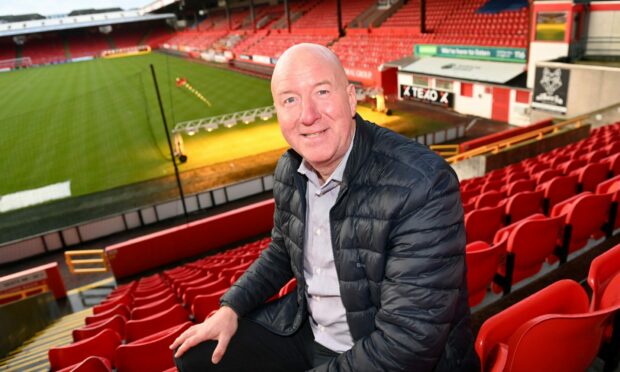
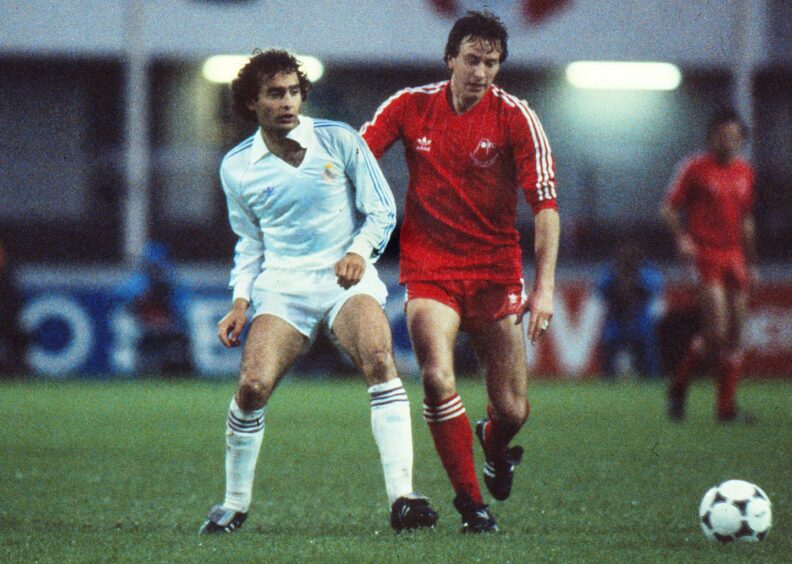
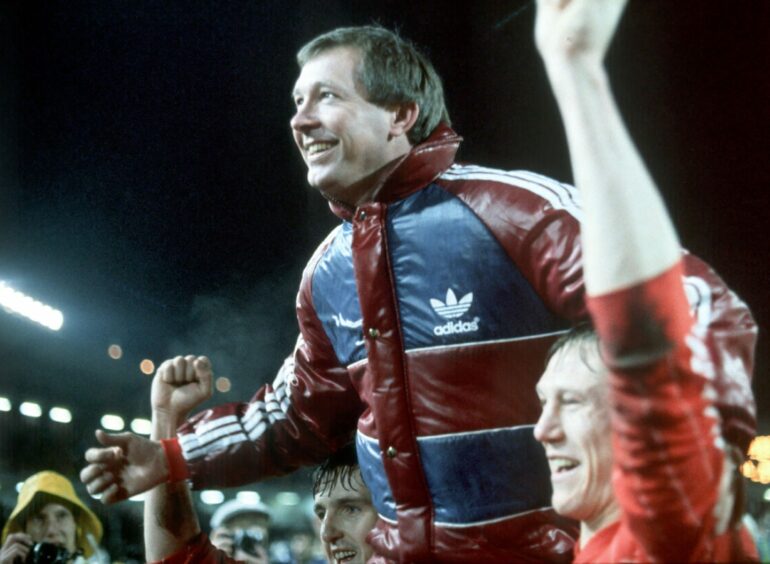
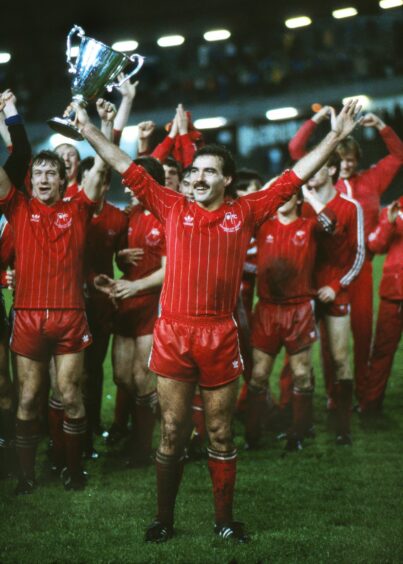
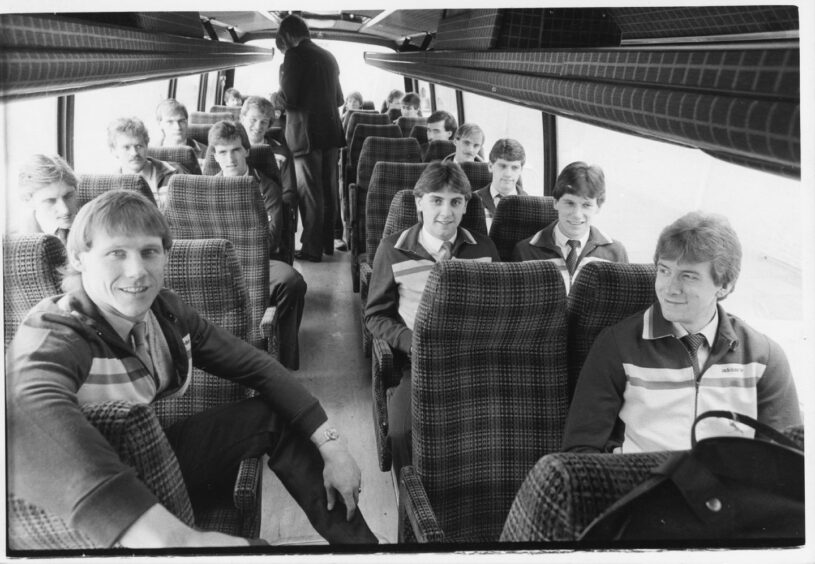
Conversation